
The Future Of Photography – Making Sense Of It In 2024
To make sense of photography in 2024 and beyond, we must make things easier for people. Stupid terms do not help. But I need to get over this. So, in this episode, I propose some new terms as a way forward for photography. These are terms that make sense and will help people take photos.
After this, I will get back to the important part of photography – taking photos. Yes, taking better photos is what I care about most.

Stupid Photography Terms That Don't Make Sense Part 3
Stupid photography terms. Terms that don’t make sense. Terms that confuse. Terms that conflict. These are terms that have no place in photography in 2023.
Here are those last nine stupid terms.
And again, I will come up with a more sensible alternative for some of these.
Crop factor
Speedlite/ flashgun
Camera shake
Stop
F-stop
Fast lens
JPEG
RAW
I know - that is eight. I will explain later.

11 More Stupid Photography Terms That Don't Make Sense
OK – this is part 2, and I have decided to make this a three-parter. Well, there is a lot to cover here, so in this episode, I will cover the next 11, and then I will finish part three with the last ones and some more thoughts. So, strap yourselves in for part 2 of me sorting out the world of photography so it makes sense in 2024 and beyond!

31 (Stupid) Photography Terms That Don't Make Sense (Any More) (Part 1)
Photography has evolved a lot over the years to where we are today. Photography terminology has not. There are photography terms that simply are not relevant in 2023. Just think about someone getting started in photography in 2023 with a phone. Hold that thought – here are the terms that I am going to talk about.
And there were so many that this is part 1 - yes, there are far too many photography and technical terms that don't make sense any more for one episode! 31 of them. Blimey. That is a lot! And when I say don't make sense anymore, some terms need a serious upgrade, even if the term makes sense or has a historical logic to it.

How To Care For Your Photography Gear - This Is What I Do
My camera equipment is very important, so I take great care of it. I keep my gear clean, safely stored and always ready to go. I have a simple cleaning and maintenance regime using a small number of commonly available products. Digital cameras and their lenses are wonderful things, but they are expensive and very breakable if you do not look after them.
This is how I care for my photography gear, so listen on, and hopefully, you will learn something that will help you take care of your gear and keep it in good working order.

How I Use This Complicated Photography Stuff To Take Photos
I use all of these complicated things when I take photos – and in this episode, I will tell you how they help me.
Aperture
Shutter speed
ISO
Exposure triangle
White balance
Back-button focus
Self-timer
Depth of field
Exposure compensation
Auto exposure bracketing
RAW files
Memory cards
DSLR Camera
Wide angle lens
Lens Hood
Tripod
Tripod Head
Universal L Bracket
Grey Card
Camera batteries
Memory Cards

Do I Really Need A Camera In 2023? Or Will My Phone Do Instead?
I need a camera in 2023. I still prefer taking photos with my camera rather than my phone. My phone is used for snaps, behind-the-scenes stuff, videos, oh yes, and to make phone calls and do other stuff. Lots of other stuff, granted.
But for taking real photos, yes, I am using air quotes here; you cannot beat the experience of taking photos with a camera. And I cannot take the photos I need with my phone. I cannot get the quality of photos with my phone that I get with my camera.
So, I need a camera in 2023.
But do you need a camera in 2023? Let me know. And if your answer is no, then that is just fine. But let me know what you think. After you have listened to this episode, of course.

Understanding Histograms In Photography
A histogram is a graph that shows the range of tones in a photo from black to white. A histogram can help a photographer to get the correct exposure. A histogram shows the photographer if an image is underexposed or overexposed and if any data is lost in the shadows or highlights.

Why Is Sharpness In Photography So Important?
Sharpness in photography relates to how the detail within a composition is captured and conveyed. A photographer should aim to produce the sharpest image every time. Sharpness can be used creatively, with the subject sharp and other elements in the composition less sharp. Image capture technique, camera settings, gear, and image processing all influence the sharpness of a photograph.

My Guide To Understanding Depth Of Field In Photography
Depth of field is the amount of a photo that is acceptably sharp from front to back. Depth of field is determined by the aperture, focal length and the distance from where you are to your subject. The photographer can change the depth of field for technical or creative reasons.
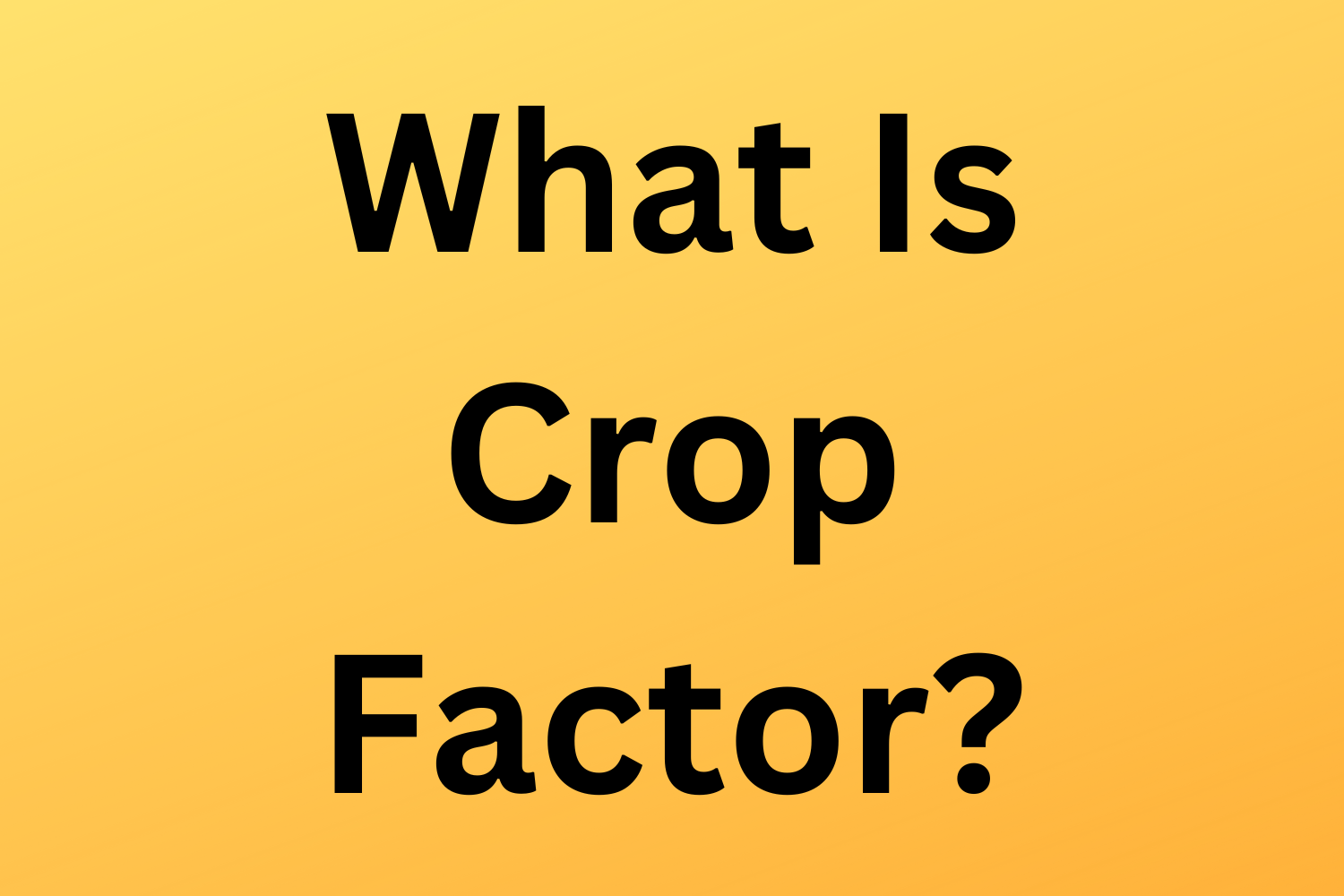
Photography Explained Podcast - What Is Crop Factor?
Crop factor is the number that is used to calculate the effective focal length when taking a photo with a cropped sensor camera or a micro four thirds camera.
A full-frame camera has a crop factor of 1 in theory, a cropped sensor camera has a crop factor of 1.5 - 1.6 and a micro four thirds camera has a crop factor of 2.
The crop factor converts the focal length stated on the lens to the effective focal length, for example
50mm on a full-frame camera is 50mm.
50mm on a cropped sensor camera is effectively 75-80mm.
50mm on a micro four thirds camera is effectively 100mm.
Basically, crop factors relate to the different sizes of digital camera sensors. The term crop factor is very important in photography, we really do need to understand this. This is about the physical size of the sensor, and how this affects the focal length selected and the effective focal length that you get.
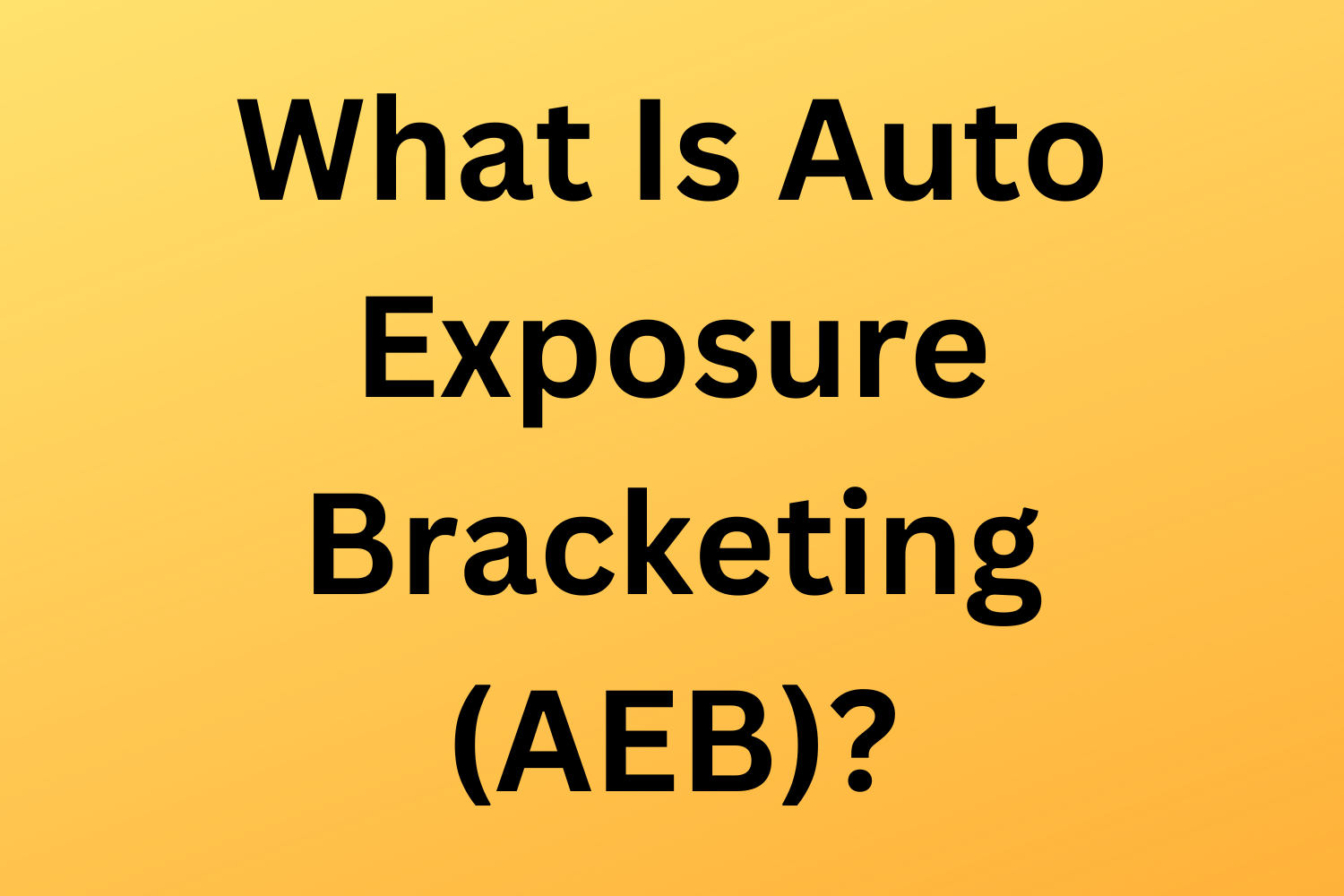
What Is Auto Exposure Bracketing (AEB)?
Auto exposure bracketing is the process of taking multiple photos at the same time to capture a wider dynamic range, a wider range of lights and darks. More of what we can see with our eyes.
When using auto exposure bracketing the camera automatically takes three photos, one the correct exposure, one underexposed photo, and one overexposed photo. The amount of under and over-exposure is set by the photographer.
The camera changes the aperture or shutter speed for the under and overexposed photos, which is determined by the picture mode that is being used.
Auto exposure bracketing is also known as AEB and is defined as an advanced operation by Canon.
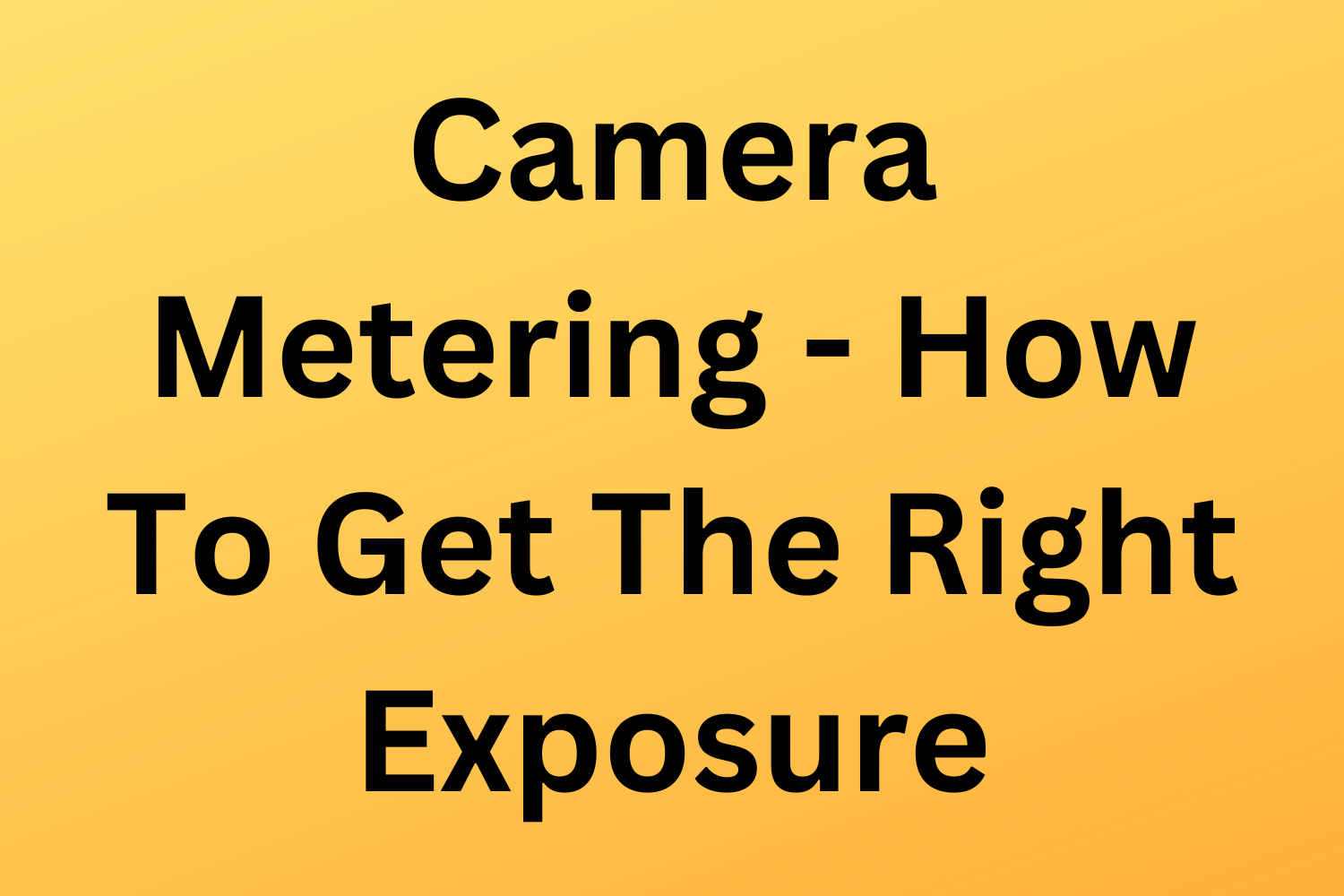
Camera Metering - How To Get The Right Exposure
When you take a photo, you press the shutter button. The camera takes a meter reading of the light before the shutter opens. The shutter then opens, exposing the camera sensor to light.
The amount of light that gets through to the camera lens is determined by the aperture selected and the amount of time that the shutter is open. The ISO determines how the camera processes the light that reaches the camera sensor.
Depending on which mode you are in, the camera selects the aperture, shutter and ISO to get the correct exposure having taken a meter reading. This is all done in the time between you pressing the shutter button and the photo being taken.
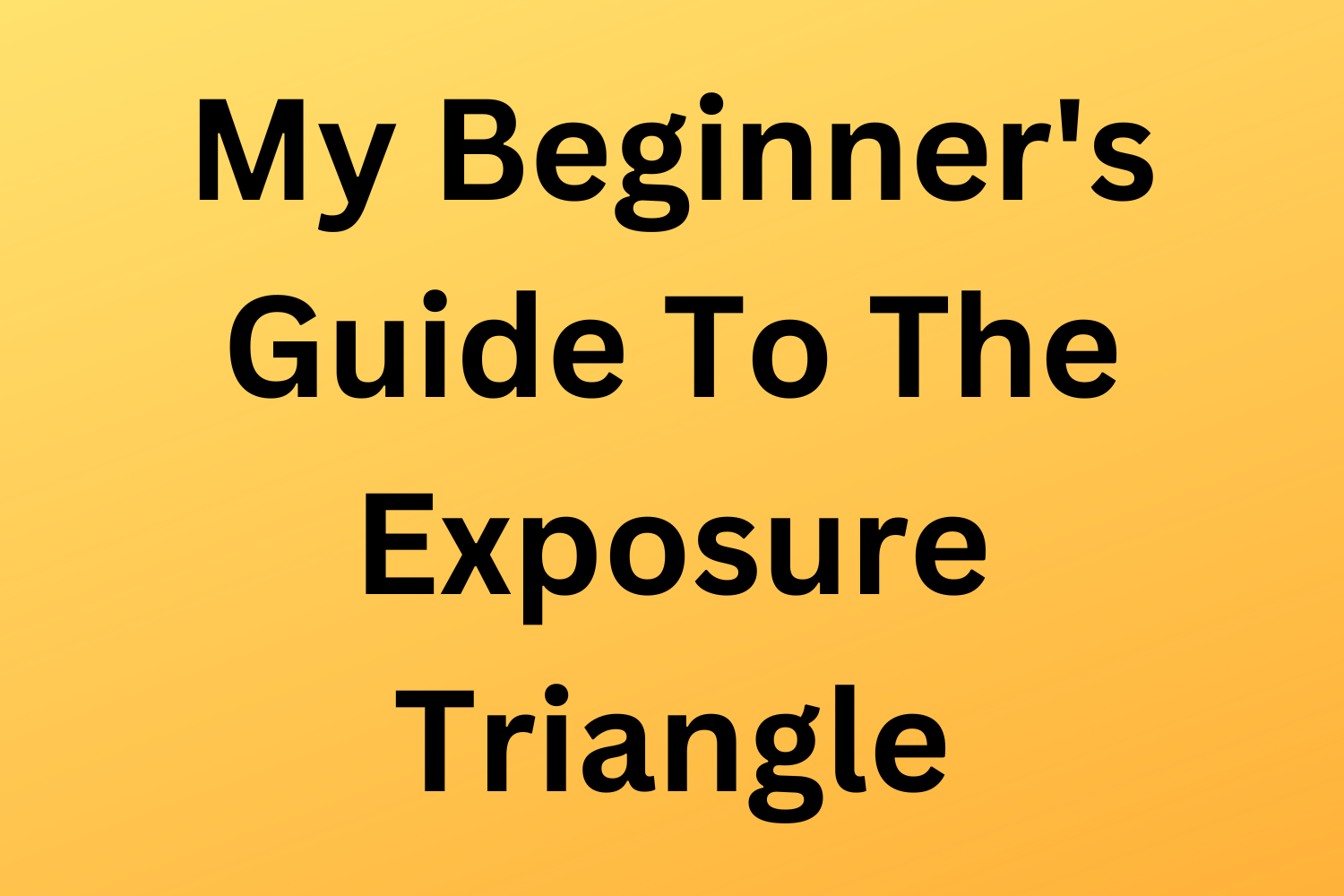
My Beginner's Guide To The Exposure Triangle
The exposure triangle is the combination of three camera settings, aperture, shutter speed and ISO, used to get a correct exposure when taking a photo. The exposure triangle allows photographers to use a specific aperture or shutter speed for a photo and still get the correct exposure. The exposure triangle helps photographers get the correct exposure in challenging lighting conditions.
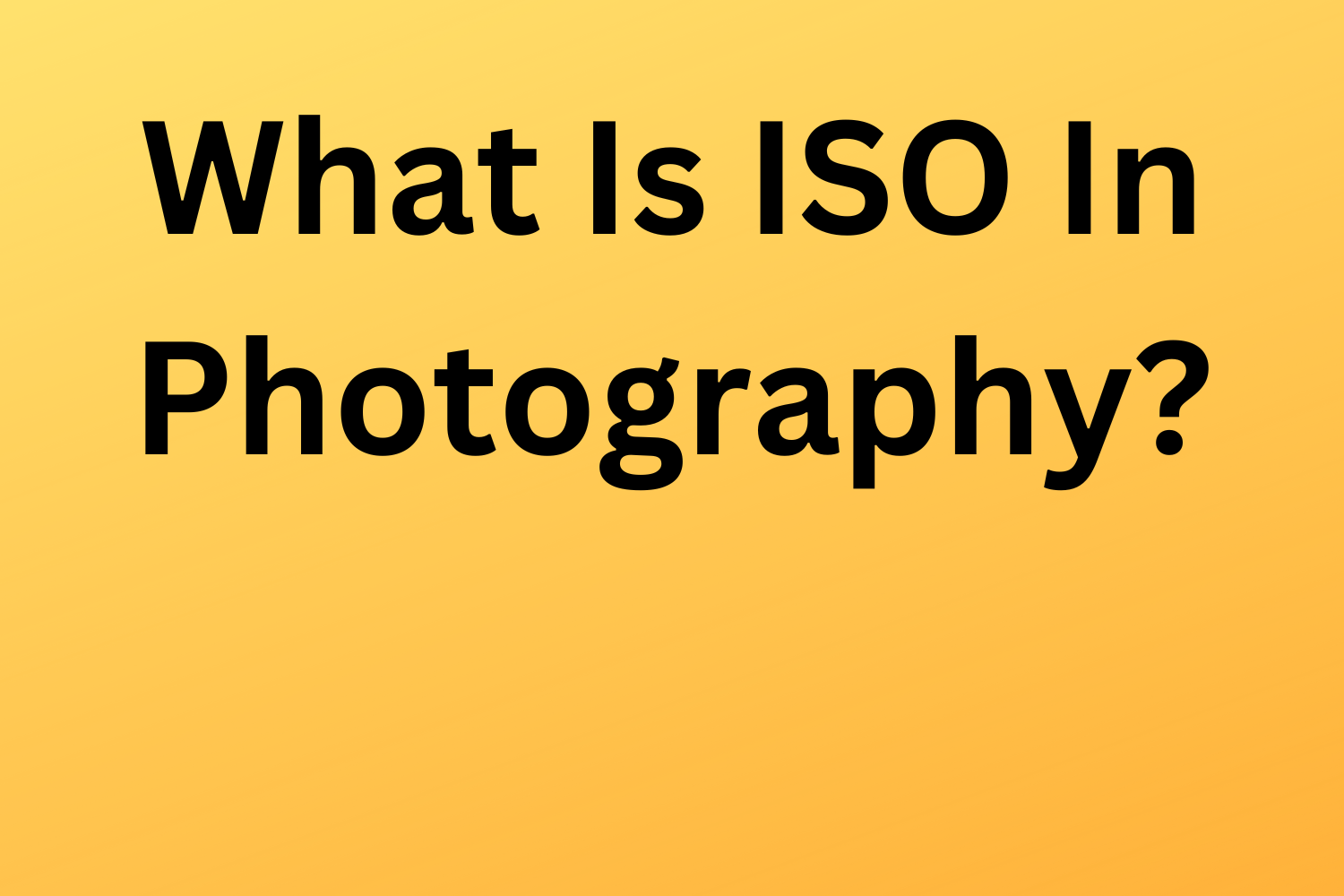
What Is ISO In Photography? All You Need To Know
ISO in photography refers to the sensitivity of the camera sensor to light. ISO is a camera setting that allows you to make a picture brighter or darker. The ISO setting helps you to use different apertures and shutter speed combinations to get the correct exposure in varying lighting conditions. The ISO setting enables you to use faster shutter speeds in low-light conditions. ISO is one of the three elements of the exposure triangle, the others being aperture and shutter speed.
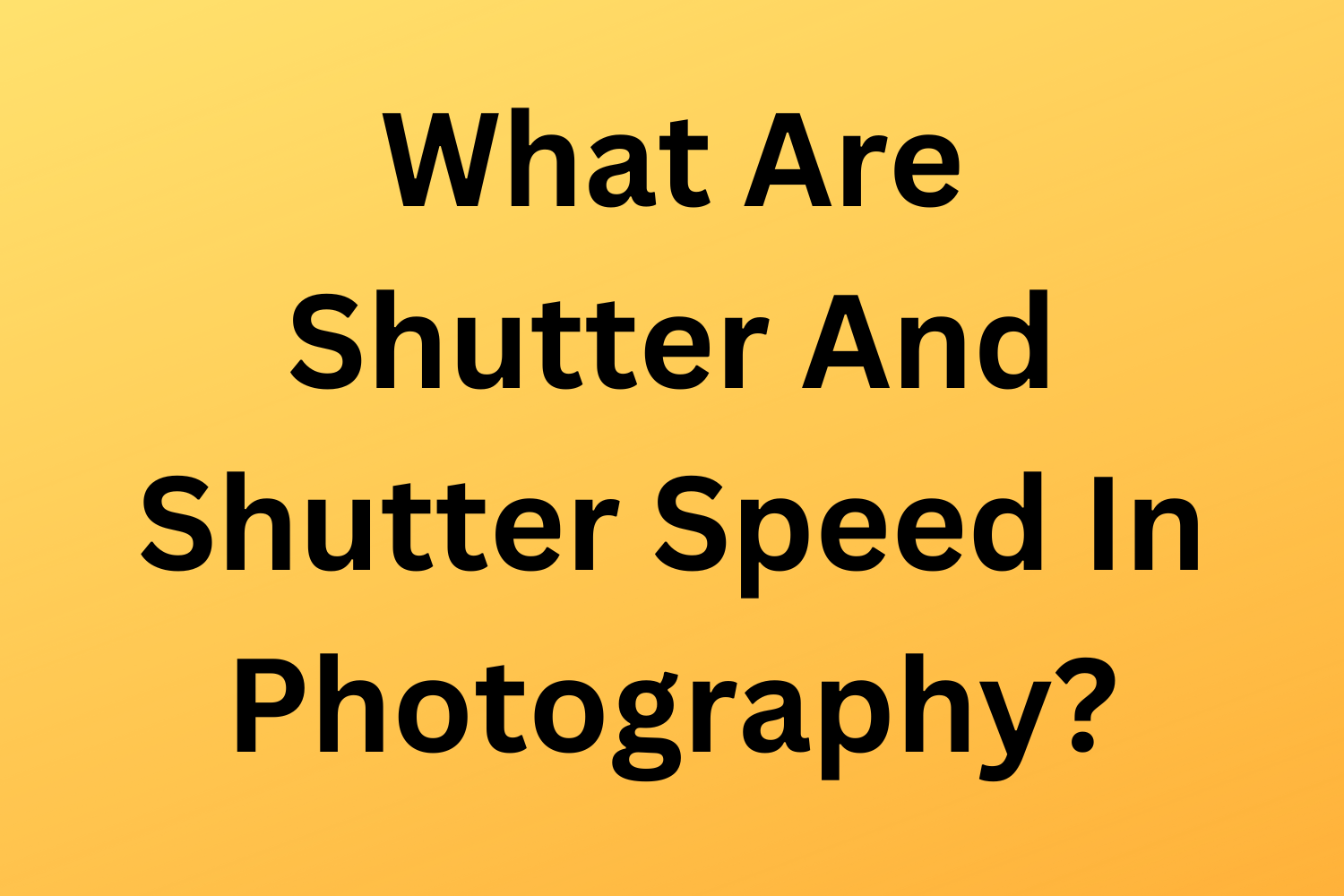
What Are Shutter And Shutter Speed In Photography?
The shutter in a camera is the thing that moves when the shutter release button is pressed exposing the camera sensor to light.
Shutter speed is the amount of time that the camera sensor is exposed to light. The shutter speed can be changed to allow more or less light to reach the sensor, getting a correct exposure in combination with the aperture and ISO. Fast shutter speeds freeze the action and capture fast-moving things, and are also used in bright lighting conditions. Slow shutter speeds can create movement and blur in photos and are also used in low-light conditions.
When taking photos handheld the shutter speed needs to be fast enough to prevent camera shake and ensure that you get a sharp image every time.
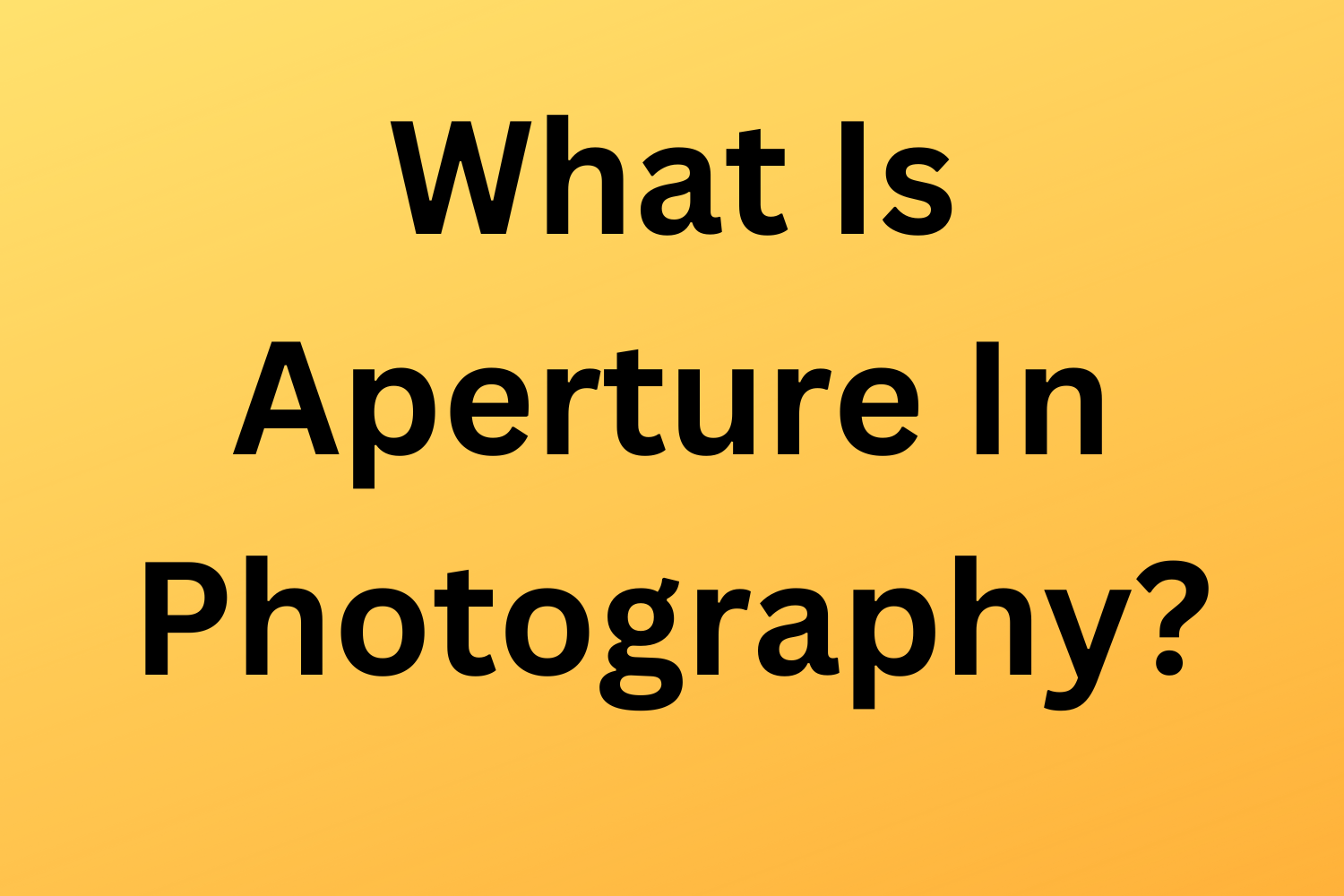
What Is Aperture In Photography? (revisited)
Aperture in photography is the size of the opening in the camera lens which light passes through to get to the camera sensor. The aperture can be made larger to let more light in, or smaller to let less light in. The aperture is used in conjunction with the camera shutter speed to get the correct exposure. The aperture is also used in conjunction with shutter speed and ISO to take photos with different camera settings. The aperture used also determines the depth of field in an image, which is the amount that is sharp from front to back.
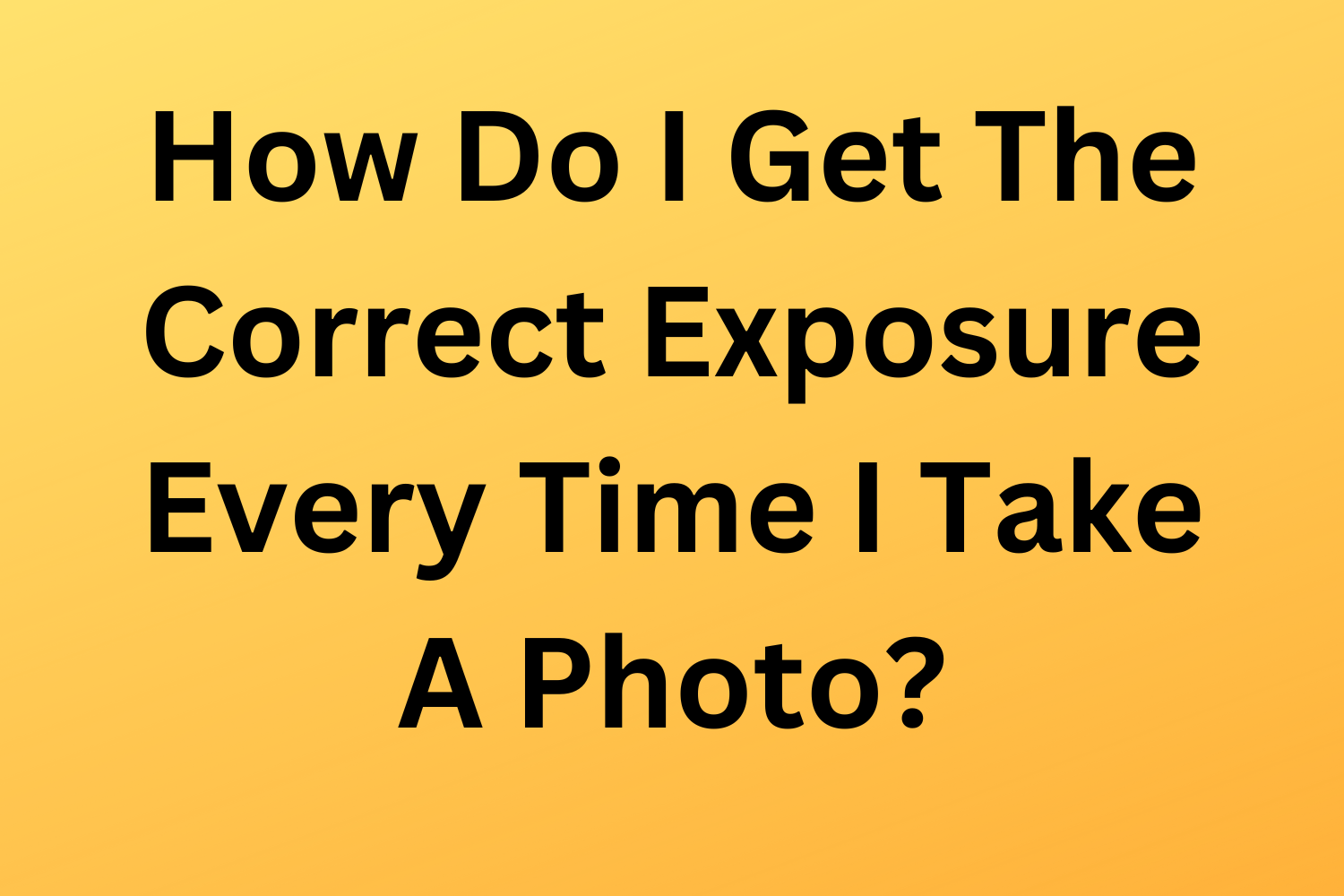
How Do I Get The Correct Exposure Every Time I Take A Photo?
To get the exposure right every time you take a photo you need to
Choose the right camera settings
Compose the photo
Take a meter reading
Adjust the settings if needed
Take the photo
Check the results
Take another photo if you have to
Or change your composition or how your subject and the light relate to each other
Yes, it really is that simple. That is how to get the exposure correct every time you take a photo.
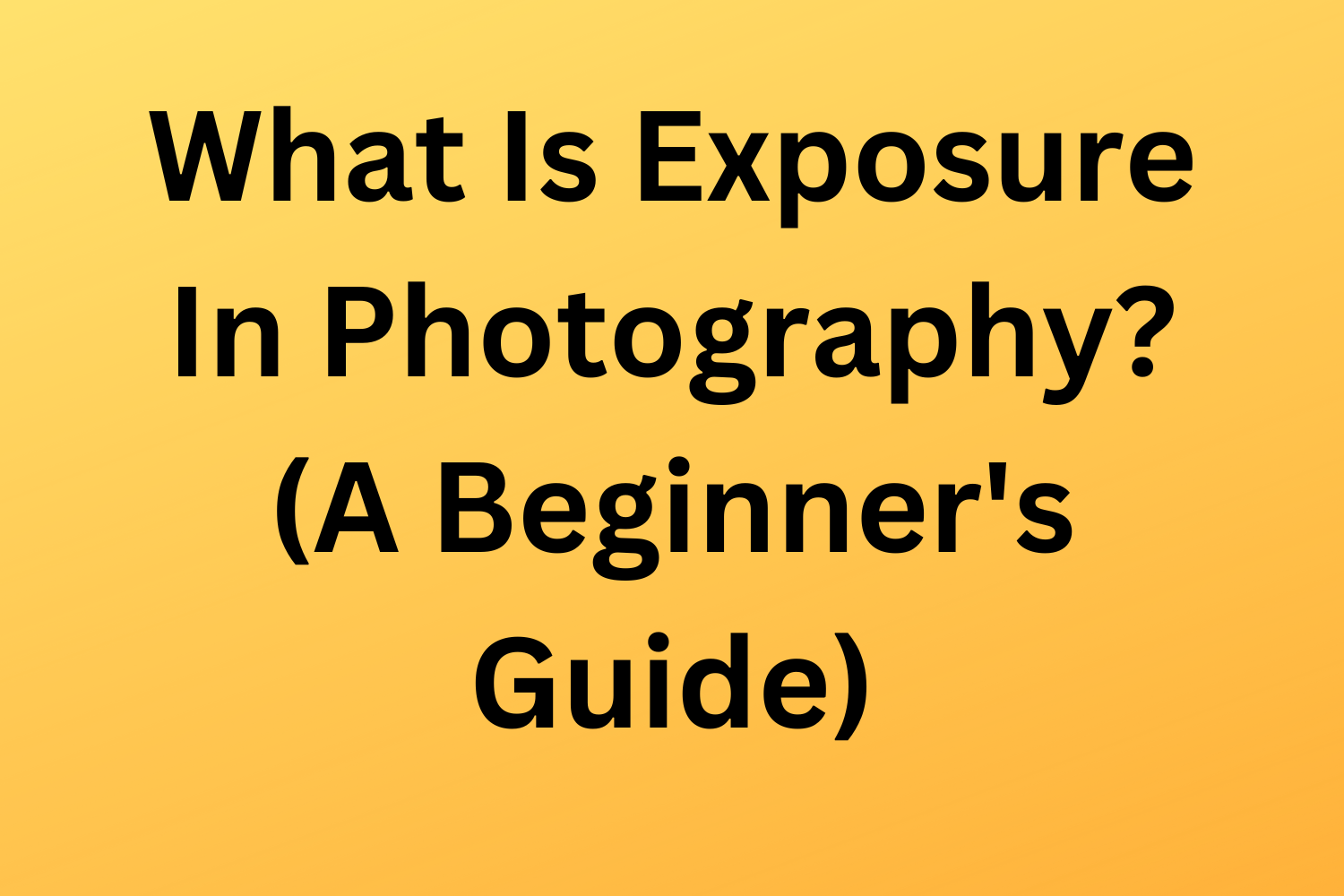
What Is Exposure In Photography? (A Beginner's Guide)
Exposure in photography is the amount of light that reaches the camera sensor when taking a photo. A correctly exposed image has captured the range of light in a scene correctly. An underexposed photo is too dark, with information not recorded in the shadows. An overexposed image is too light, with information not recorded in the highlights.
The exposure can be changed by changing the aperture, shutter and ISO. The relationship between the aperture, shutter and ISO is called the exposure triangle.
Photographers must understand exposure to ensure we know how to take photos correctly. You should get the right exposure every time you take a photo.
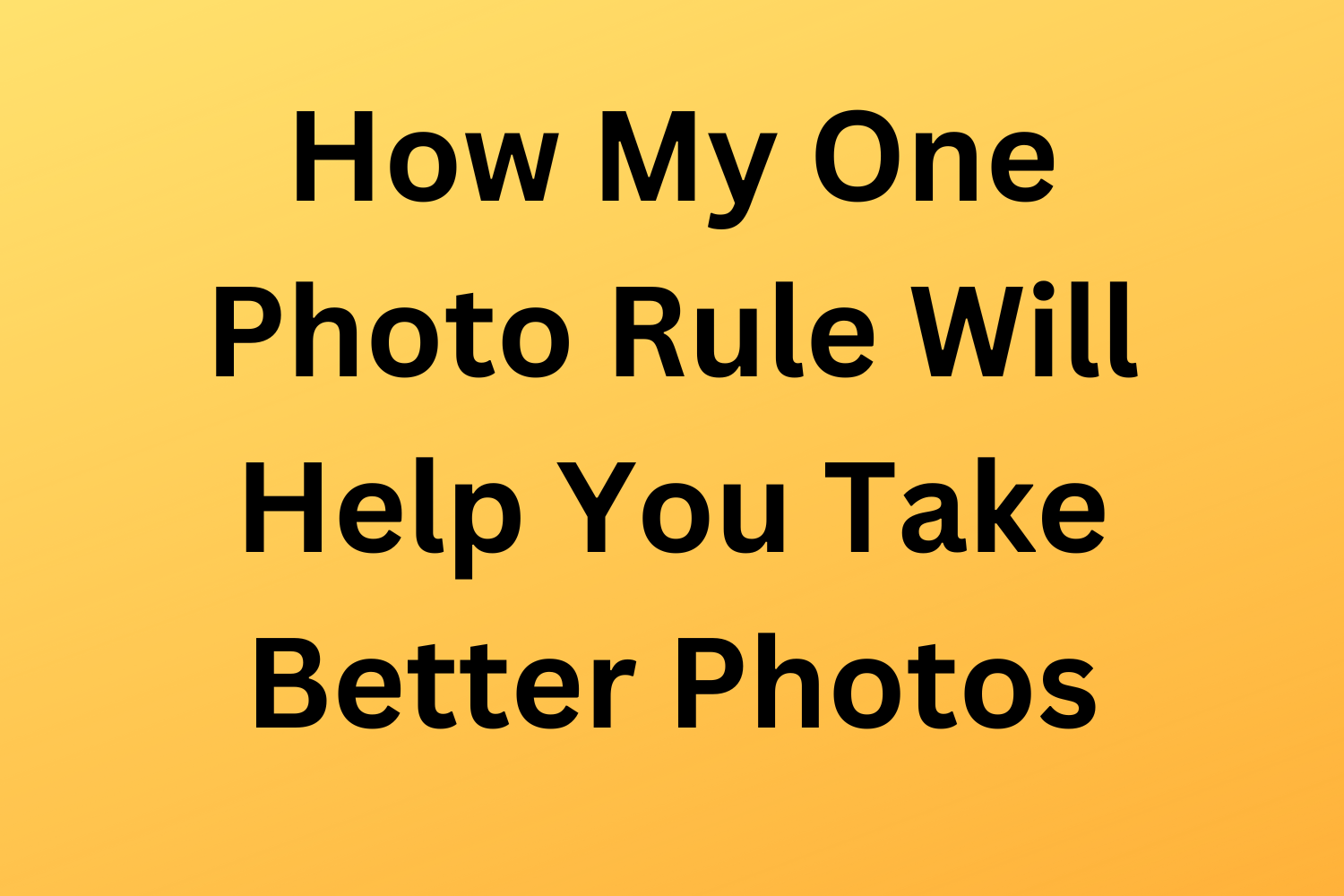
How My One Photo Rule Will Help You Take Better Photos
Take one photo. When you are looking at something you want to photograph take one photo. Do not take loads of photos from different angles and viewpoints. Do not take hundreds of photos and try to find the good one when you get back home. Stop, think, look around, and take the best one photo that you can. And then move on.